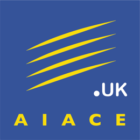Back to general information menu
Overview of the EU Pension System
The essential points of the system to remember are:
- our scheme is a fully funded scheme, even if there is no separately-managed fund,
- each of our pensions has been paid for by our employer and by ourselves during our working careers, on the basis of regular independent actuarial assessments,
- our pensions are guaranteed by all the member states.
Martin Clegg, one of our committee and of the AIACE International Bureau, with Marc Oostens, AIACE International Treasurer, have prepared an excellent explanation of the scheme which may be found here (The Pension Scheme of the EU).
Mr Clegg has also recently prepared (24.04.23) an Analysis and summary on EU Pension scheme Report.
Contacting PMO
The Pensions unit of PMO offers a telephone number to pensioners (including survivors and orphans). All pension-related questions may be raised. The number is + 32 (0)2-297 88 00.
Your monthly pension statement contains contact details, email and phone number for specific questions on your pension.
From May 2023 Staff Matter has published a new page concerning specifically pensioners. This new page brings together useful information for pensioners: Link to presentation document.
Explanation
Salaries and pensions are adjusted with effect from 1 July each year according to the agreed Method based on comparisons (up or down) with public service pay in a ‘basket’ of 11 member states.
- The application of the Method is based on the combined effect of the comparison with the pay of central government public servants in a representative sample of 11 Member States over the 12-month period to 1 July and the average increase in the cost of living in Brussels/Luxembourg over the same period.
- The annually fixed exchange rates used to convert both salaries and pensions determined in euro into the currencies of countries outside the Eurozone are updated with effect from 1 July .
- The salaries of EU officials working outside Belgium/Luxembourg are further adjusted to take account of cost of living differences compared to the latter, through changes to the correction coefficients which are fixed for the main places of employment within each of the countries concerned, aiming to ensure equal purchasing power between the different duty stations.
- For EU pensioners in Member States, cost of living differences are also calculated but for each country as a whole.
- However, the correction coefficients which result are applied only where they give a result of more than 100, i.e. for those countries with a relatively high cost of living compared to Belgium/Luxembourg (this includes the UK); pensions paid in other countries have a “floor rate” of 100.
- Moreover, in accordance with the applicable rules, the correction coefficient is only applied to pension rights acquired before 1 May 2004, and, in the case of those who retired after that date, on condition that the pensioner has both provided evidence of permanent residence in the Member State concerned and has that same Member State as his/her officially-recorded place of origin or last place of EU employment.
- Annual adjustments should be applied with the end December pension payment, going up or down by the appropriate amount for that month. The full amount of the backlog for each of the months from 1 July onwards should also be included.
Pension calculator
You can check the calculation of your pension by using our own Pension Calculator.
Please note that this has been prepared by Martin Clegg, a member of AIACE UK's National Committee. It is not official. But its results are very close to what the correct official calculation should be. The calculator also makes it easy to work out what a survivor's pension would be should the primary beneficiary die.
Common Reporting Standards/Tax identification numbers
Members who have a bank account in another country may receive a request for a Tax Identification Number (TIN). This is as a result of collective efforts to reduce tax evasion. Many people are being asked as a matter of routine. (This note on the Common Reporting Standard explains the background. If you receive a request to supply a TIN, if you are making tax returns to the UK tax authorities you may find in your dealings with them a Unique Tax Reference. If so, please give this as your TIN. If not, please give your National Insurance Number.
HMRC Notice on exemption from UK tax for EU pensions
HMRC International Manual-European Union: exemption of staff link here.
